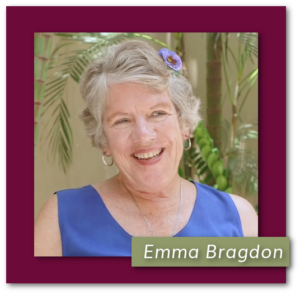There is a heated argument around understanding psychosis and psychotic episodes. The dictionary of psychiatry considers it an illness, like a symptom of a broken brain. Increasing numbers believe it does not exist as a mental illness or a symptom of mental illness. Instead, it is a natural expression of being emotionally and psychically overwhelmed. Thus, trauma lies at the root. Medications may give us respite from overwhelm–but they do not heal us from trauma.
Understanding psychosis and so-called “symptoms”, like delusions or hallucinations, means we have to understand trauma and its effects. Since we now know that the effects of trauma can dissipate through various effective therapies—psychosis is a temporary condition, a natural response to difficult life circumstances, not a mental illness. When there is trauma or complex PTSD we need to use a label that does not imply the presence of mental illness.
[IMHU offers a brief, free online course to describe this point of view more fully, “Psychosis: What is it?” You can participate by clicking here.]Understanding Psychosis and Labeling It Appropriately
It is certainly true that psychotic-type symptoms, like manic activity, can signal us that someone is overwhelmed and needs respite. When this occurs as a result of a person seeking meaning and purpose in life through intensive workshops or retreats, it may be considered a “spiritual emergency”. Similarly, if someone has had dramatic spiritual experiences as a result of mind-altering drugs, sacred herbs, or psychedelics, that person may need respite and TLC to reorient and re-evaluate. It can happen that life itself spontaneously brings profound spiritual experiences, e.g. watching a loved one die or having a near-death experience, which also may lead to a spiritual crisis and need for extra understanding and care. People in spiritual emergency are often deeply self-absorbed, sorting out extraordinary perceptions, such as visions they have had…but they are not mentally ill because of this condition.
[If you want more information you can participate in a free course at IMHU called “Spiritual Emergency: What is it?” by clicking here.]Understanding Psychosis by Understanding Spiritual Crisis
Perhaps many people on the face of the earth are now in some sort of spiritual crisis. Consider: environmental or political refugees who have been displaced from their homes. Teenagers who have witnessed shootings in their high schools. Parents who worry about what kind of world their small children will enter as adults. All of them are going through a profoundly challenging period of overwhelm and disorientation.
These situations often plunge a person into crisis and a deluge of questions: “Why me? How could a loving God have this happen? Is there a God? Where do people go when they die? Where will I go when I die? Why am I here?”
What is Needed?
It is time now that we have more peer support from trained peer specialists and trained mentalhealth providers for people in spiritual crisis. They aren’t broken. They may not fare well with medications. Of course, people in crisis have physical needs: food, potable water, adequate clothing, a place to rest, i.e. safe shelter. They also need a kind of psychological and spiritual support that is not medical and not about a broken brain but a space to discuss their deep questions and share with others in a supportive environment. Ongoing support for spiritual understanding in a group format can be an effective anchor in the storm. Without this anchor, we can more easily become adrift in waves of depression and anxiety.
With spiritual crises we are not looking at or responding to mental illness. Instead, we are seeing a need for compassion, for speaking about what gives each of us meaning and purpose, for sharing how to step up to a better life with supportive connections as our safety net. The psyche and soul reach out, often desperately, for understanding, companionship and compassion.
Author:

Dr. Bragdon offers an online course on “How to Effectively Support Someone in Spiritual Emergency” which is helpful for anyone in spiritual crisis as well as their loved ones and caretakers. Those who subsequently also take the Practicum, a live 2-day workshop, are qualified to become certified as “Spiritual Emergence Coaches®”. “How to Differentiate Spiritual Crisis from Pathology” is a 2-hour presentation now online and available. IMHU lists over 100 such coaches in its International Spiritual Emergence Coach Directory. Many are available for online or live support.
Illustration of anchor: Julia Henze
<a href=’https://www.123rf.com/profile_juliahenze’>juliahenze / 123RF Stock Photo</a>


Every bit of this article resonates with what I wish I can help the world understand…
I am 24, trying to find my way to aiding this movement away from psychiatry’s model. I have a passion to help others heal from experiences I’ve had, but was forced, in hospitals, to numb away.
In 1 year I’ll have a Bachelors degree in International Communication, and I am unsure where to move forward to research and promote these concepts in public dialogue and communication… I would greatly appreciate being directed to someone to discuss these things with. Thank you so much.
Hello Haley, You might be very interested in the movements in UK, Finland, and Brazil. Russell Razzaque, MD, is a leader in the UK. Open Dialogue is a way of working created in Finland that has great success. Brazil has Spiritist Treatments. See my book, “Kardec’s Spiritism” for more on Brazil or look at https://imhu.org/product/brazil-trip. Best of luck in your journey, Emma